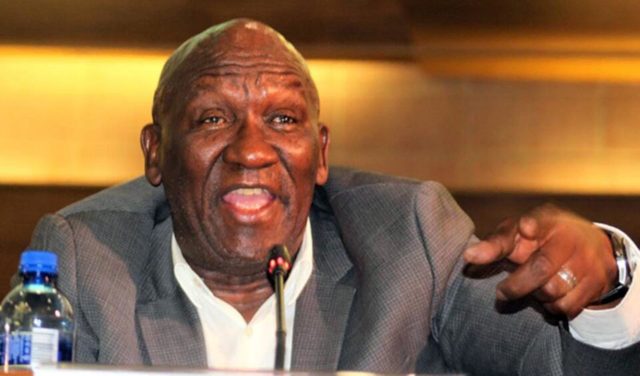People who break the stringent new Covid-19 lockdown level 3 regulations will be arrested and may be charged, fined and imprisoned for criminal offences such as breaking the curfew and not wearing a mask in public
Durban – IN A DESPERATE attempt to prevent the spread of Covid-19, Police Minister Bheki Cele has announced the establishment of a whistle-blower hotline where the public can report people who have tested positive for the virus yet flout the rule to self-isolate.
Cele also told the media that people who break the stringent new Covid-19 lockdown level 3 regulations will be arrested and may be charged, fined and imprisoned for criminal offences such as breaking the curfew and not wearing a mask in public.
Cele and Co-operative Governance and Traditional Affairs Minister Nkosazana Dlamini Zuma issued the stern warning at a media briefing yesterday following President Cyril Ramaphosa’s announcement about the new restrictions, which have now criminalised not wearing a mask in public places.
The level 3 restrictions will remain in place until January 15.
Ramaphosa declared the following areas in KwaZulu-Natal Covid-19 hot spots:
– eThekwini
– uMgungundlovu District
– Ugu District
– Harry Gwala District
– King Cetshwayo District
– Ilembe District, along with more than 20 additional districts nationally.
Cele said the police would establish a platform similar to 10111, where the public can report people who don’t adhere to the regulations, including self-isolation of those infected.
Health Minister Zweli Mkhize said the country had registered 1 011 871 cumulative Covid-19 cases on Monday with more than 7 000 new cases reported on the day.
He said KZN had reported the most new cases, totalling 2 275 (30.5%); followed by the Western Cape with 2 191 cases (29.4%), Gauteng with 1 849 cases (24.8%) and the Eastern Cape with 384 cases (5.1%).
“In this last epidemiological week we have surpassed the peak of the first wave and we had indicated that the epidemiological picture would compel us to tighten restrictions,” he said.
“The overall positivity for the newly tested individuals is 32.9%, with the Western Cape at 45.6%, followed by Limpopo at 41.0%, KwaZulu-Natal at 36.0% and Mpumalanga at 33.1%. These positivity rates are extremely high and are a major concern. Overall we need to test more and target a positivity rate of 10% or less,” Mkhize said.
He said 11 256 patients – 8.3% of the active caseload – were hospitalised.
Of these, 3 543 patients are on oxygen and 604 are on ventilators.
Mkhize said provinces were instituting tailored resurgence plans, adapted from the surge plan developed together with the World Health Organization.
The key focus areas of the resurgence plan include governance and leadership; medical supplies; port and environmental health; epidemiology and response and facility readiness and case management.
“The safety of our healthcare workers remains paramount and we are concerned by the rising numbers of professionals becoming infected with Covid-19 during this second wave,” Mkhize said.
Outlining the new regulations, Dlamini Zuma said there had not been any changes to international travel, although travel from high-risk countries remained prohibited. She said all borders already open remained so and the Kosi Bay border would be reopened from January 1, while interprovincial travel was permitted for now.
Cele said the police had until now pleaded with the public to wear their masks in public spaces but this had been a problem “for a long time”. He said police would be focusing on arresting people for contravening regulations by not wearing masks, breaking curfew and transporting alcohol.
“We are glad that now the enforcement has been heightened, we are not just going to remind you to wear the mask… if you don’t you will definitely be arrested,” he said.
The regulations allowed for a fine or imprisonment of up to six months, he said.
“When you are in a public space, keep that mask on, failing which you will become the client of SAPS to charge you. Unfortunately, most of you are going to have criminal records and you know what that does in your life,” he said.
Cele said alcohol should not be moved anywhere, by car or by foot.
“Those who have licences and permission to trade alcohol… if they break the law and trade it illegally their licence will be taken away,” he said.
Cele warned restaurateurs not to serve alcohol in teapots or in zero alcohol bottles.
“We know your tricks. If we come and find there is something other than tea in a teapot we will make sure you lose your licence,” he said.
He said police would also be policing the curfew.
The Mercury








